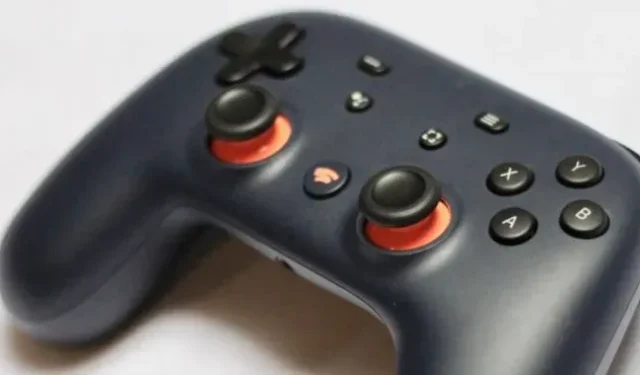Stadia controllers could become electronic waste if Google doesn’t release a Bluetooth update

Game streaming service Google Stadia will die an almost inevitable death early next year. Google will refund players for all hardware and games they purchase. But for now, Google is also leaving Stadia players with controllers that, while they once cost $70, will soon work for less than a $20 Bluetooth gamepad.
Stadia controllers were purpose-built to connect directly to the internet, reducing latency and allowing for instant firmware updates and (sometimes painful) connectivity to smart TVs. There is Bluetooth inside the Stadia controller, but it is only used when setting up the Stadia with either a TV, a Chrome browser computer, or a Chromecast Ultra.
On the Stadia controller ‘s Google Store page, a footnote states: “This product contains a Bluetooth Classic radio. Bluetooth Classic features are not enabled at this time. Bluetooth Classic may be implemented at a later date.”(Bluetooth Classic is a more traditional version of Bluetooth than today’s energy-saving or mesh versions.)
This potential later date can’t be much later for Stadia controller fans. Many cite the hand feel of the controller and consider it their favorite. They would like Google to unlock Bluetooth to make their favorite controller something more than a USB controller and avoid a lot of plastic and circuit board debris.
“Now if you just turned on Bluetooth on the controller, we could help the environment by preventing them from becoming electronic waste,” Roadrunner571 writes in one of the many controller-related threads on r /Stadia. “They created garbage and they are at least required to do everything they can within reason to keep millions of otherwise perfectly good controllers from filling the landfills,”wrote another.
Many have urged Google, if they are not going to release a firmware update themselves to unlock the functionality, to open access to the devices themselves so that the community can do it for them. This is often a difficult scenario for large companies that rely on a number of subcontractor manufacturers to produce equipment. Some have suggested that a full refund gives Google more leeway to ignore the limited function of their devices after being turned off.
You can still plug your Stadia controller into the USB port of your Smart TV, computer or game console and use it as a controller via a standard HID (Human Interface Device) connection. How-To Geek reports that it works well on PC and Android devices, but doesn’t work well on Xbox or Playstation consoles. There is at least one Github project that reportedly improves the Windows feature of the Stadia controller (as an Xbox controller). One intrepid Stadia fan, Part Shah, has already built a Python hack for Stadia Wireless to make the Stadia controller work “wirelessly”: connect to a phone, then that phone connects to a Windows PC via Wi-Fi, emulating a standard Xbox controller.
However, Shah is also active on the Stadia subreddit, asking for his creation to be deprecated: “It would be so cool if we didn’t have to go through all these problems. Hopefully (G)oogle will do something about it.”
There are some precedents where new firmware is pushed towards old business ideas. Valve, maker of the Steam game store for PC and various hardware connected to it, enabled Bluetooth Low-Energy on Steam controllers just before its Steam Box and Steam Link hardware ambitions petered out. Valve had something else in mind, which was the Steam Link software on other platforms. But Valve has made the Steam controllers viable for a host of other platforms and has prevented them from reaching, at best, e-waste sorting facilities.
Electronic waste from abandoned equipment is one area where Google, like many other big tech companies, is much quieter than it is about carbon emissions, water, or even food waste. The company’s pledge to create a “Circular Google “states that the company believes that “by incorporating cycling into our designs from the start, things built today can become tomorrow’s resources and enable reuse, repair and restoration.”
In this case, it seems that circularity in the form of a standard Bluetooth controller is inside the Stadia controllers. Customers would appreciate reuse and recovery.
Leave a Reply